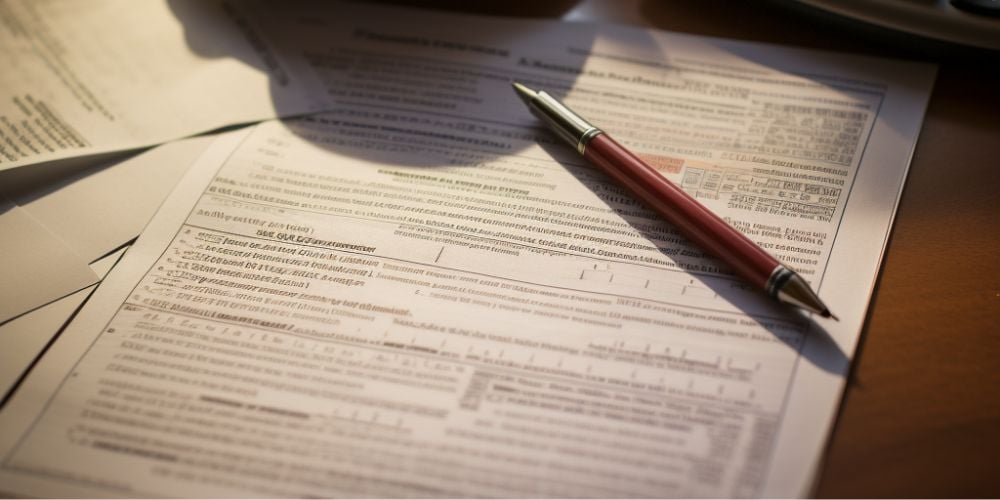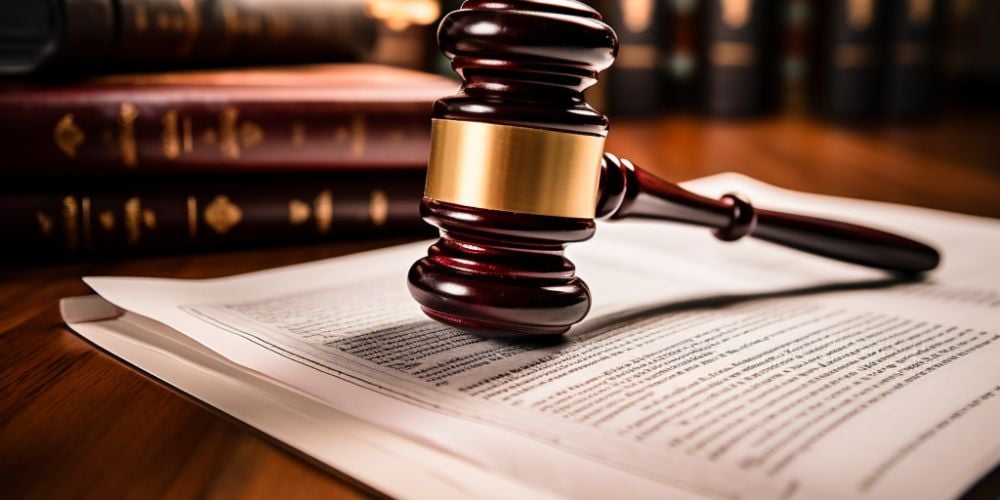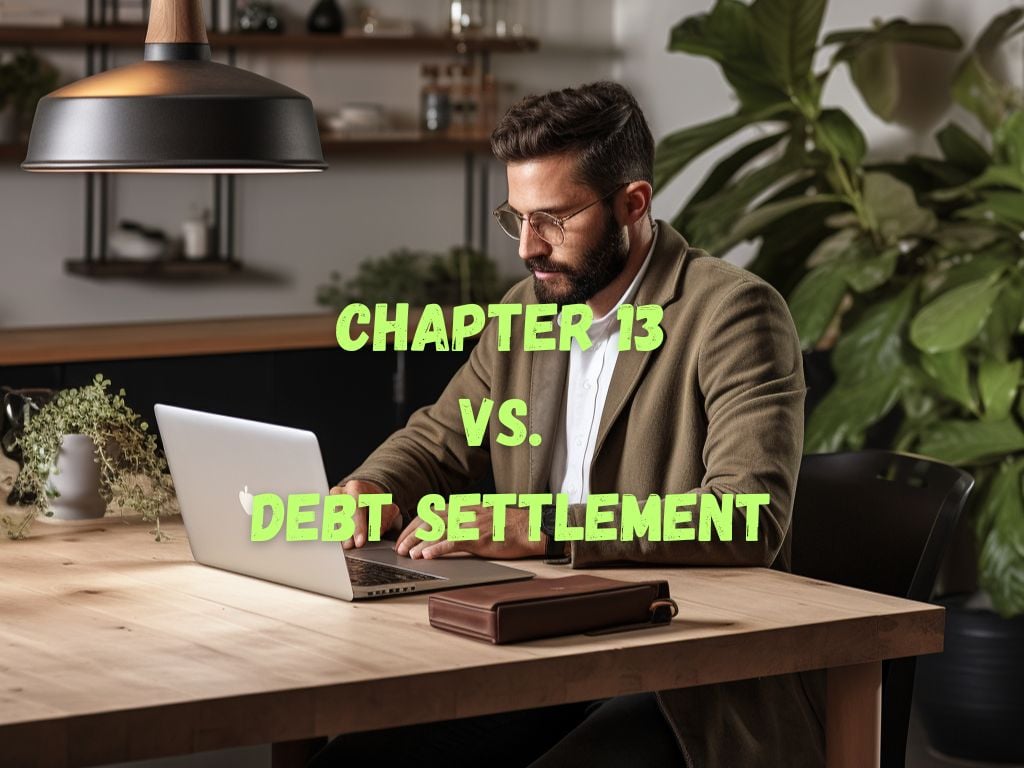In today’s challenging financial landscape, many individuals find themselves burdened by excessive debt. If you’re facing overwhelming debt, exploring options for debt relief is crucial.
Two common paths people consider are Chapter 13 bankruptcy and debt settlement.
In this article, we will delve into the key differences between Chapter 13 vs debt settlement, helping you make an informed decision about which option is right for you.
Chapter 13 Overview:
Chapter 13 bankruptcy is a legal process designed for individuals with a steady income who want to restructure their debt and set up a repayment plan.
This type of bankruptcy allows debtors to keep their assets while getting on track to repay their creditors.
Unlike Chapter 7 bankruptcy, which involves liquidating assets to pay off debts, Chapter 13 offers a more manageable and structured approach.
To be eligible for Chapter 13, you must have a reliable source of income and debt that falls within specific limits. The repayment plan typically lasts for three to five years, depending on your financial situation and the court’s approval.

Debt Settlement Overview:
Debt settlement, on the other hand, involves negotiating with creditors to reduce the overall amount you owe.
This option is suitable for individuals who are unable to handle their debt load but want to avoid bankruptcy.
Debt settlement companies or individuals work on your behalf to negotiate with creditors for a reduced payoff amount or favorable repayment terms.
To be eligible for debt settlement, you typically need to demonstrate financial hardship and have a significant amount of unsecured debt, such as credit card or medical bills. Debt settlement can provide a way to satisfy your creditors for less than the full amount owed while avoiding bankruptcy.
Chapter 13 vs Debt Settlement: Differences
Eligibility Requirements:
Chapter 13: Eligibility criteria for Chapter 13 bankruptcy include having a reliable source of income, being below the debt limits set by law, and not being involved in previous bankruptcy filings within a certain timeframe.
Debt Settlement: Debt settlement does not have strict eligibility criteria, but it is generally more suitable for individuals with significant unsecured debt and a demonstrated inability to repay it in full.
Repayment Plan:
Chapter 13: Under Chapter 13, you propose a repayment plan based on your income and expenses. The court reviews the plan and determines an affordable monthly payment. This repayment plan typically lasts three to five years.
Debt Settlement: Debt settlement involves negotiating with creditors to reach a lump sum payment or a new repayment plan with reduced balances or interest rates. The settlement amount is usually a percentage of the total debt owed.
Impact on Credit Score:
Chapter 13: Filing for Chapter 13 bankruptcy will have a negative impact on your credit score. The record of bankruptcy will stay on your credit report for up to ten years, making it difficult to obtain new credit or loans during that time.
Debt Settlement: Debt settlement may also have a negative impact on your credit score, as it involves negotiating and settling debts for less than the full amount owed. However, the impact is generally less severe and shorter-lived compared to bankruptcy.
Legal Process:
Chapter 13: Filing for Chapter 13 bankruptcy requires hiring an attorney and submitting a petition to the court. The court oversees the entire process, including the creation and approval of the repayment plan.
Debt Settlement: Debt settlement can be a do-it-yourself process or done through a debt settlement company. While not legally required, seeking professional assistance can be beneficial in negotiating with creditors and ensuring proper documentation.
Tax Implications:
Chapter 13: In Chapter 13 bankruptcy, you may need to repay some of your debts through a court-approved plan. However, any remaining debts discharged by the court are generally not considered taxable income.
Debt Settlement: Debt settled for less than the full amount may be considered taxable income, subject to certain exceptions. It is crucial to consult with a tax professional to understand the potential tax implications of debt settlement.

Pros and Cons of Chapter 13 and Debt Settlement:
Chapter 13 Pros:
- Allows you to keep your assets
- Provides a structured repayment plan
- Offers debt relief while protecting you from creditor actions
Chapter 13 Cons:
- Negative impact on credit score
- Requires a reliable source of income
- Involves a more complex legal process
Debt Settlement Pros:
- Can settle debts for less than the original amount owed
- Offers an alternative to bankruptcy
- Provides an opportunity to negotiate more favorable repayment terms
Debt Settlement Cons:
- Potential negative impact on credit score
- May require involvement of debt settlement companies
- Potential tax implications for the forgiven debt
Choosing Between Chapter 13 and Debt Settlement:
When it comes to selecting between Chapter 13 bankruptcy and debt settlement, it’s crucial to carefully evaluate your financial situation and goals.
Here are some factors to consider during the decision-making process:
Financial Situation:
- Income and Expenses: Assess your income stability and ability to afford the monthly payments required under a Chapter 13 repayment plan.
- Debt Load: Consider the total amount of debt you owe and whether it is within the limits allowed for Chapter 13 bankruptcy. Debt settlement may be a better option for those with significant unsecured debts, such as credit card balances.
- Assets: Review your assets, including your home, vehicles, and other property. Chapter 13 allows you to keep your assets, while debt settlement may not offer the same level of protection.
Future Financial Goals:
- Credit Rebuilding: Evaluate how quickly you need to rebuild your credit. Debt settlement may have a shorter-term impact on your credit score compared to the ten-year record of bankruptcy in Chapter 13.
- Homeownership: Consider whether you want to retain your home. Chapter 13 can help you avoid foreclosure and catch up on mortgage payments over time, while debt settlement may not provide the same level of protection for homeowners.
- Long-Term Financial Stability: Assess whether Chapter 13 or debt settlement aligns better with your long-term financial goals and whether either option will offer the necessary relief to help you achieve those goals.
Creditworthiness:
- Impact on Credit Score: Understand that both Chapter 13 and debt settlement can have negative effects on your credit score. However, the impact may vary in severity and duration. Chapter 13 bankruptcies generally stay on your credit report for up to ten years, while the impact of debt settlement on your credit score may be shorter-lived.
- Future Credit Opportunities: Consider how each option may impact your ability to obtain credit in the future. Some creditors may view a Chapter 13 bankruptcy more favorably than debt settlement when evaluating creditworthiness.
Legal and Professional Assistance:
- Legal Representation: Keep in mind that filing for Chapter 13 bankruptcy involves a more complex legal process. Hiring a bankruptcy attorney is highly recommended to ensure compliance with the law and to navigate the court procedures effectively.
- Debt Settlement Companies: If you choose debt settlement, you may opt to work with a debt settlement company. Research and choose a reputable company that adheres to ethical practices. Understand the fees involved and ensure that the company has a track record of successfully negotiating settlements.

Frequently Asked Questions:
Can I choose between Chapter 13 and debt settlement if I am eligible for both?
Yes, you can choose between Chapter 13 bankruptcy and debt settlement if eligible. Evaluate your financial situation, consider the impact on your credit score, and consult a professional for personalized guidance.
What happens if I miss payments during a Chapter 13 repayment plan?
Missing payments during a Chapter 13 plan can result in case dismissal, leaving you unprotected from creditors. Communicate financial difficulties with your attorney to avoid dismissal.
How long does debt settlement negotiation typically take?
Debt settlement negotiation duration varies based on factors like the number of creditors, debt complexity, and negotiation effectiveness. It can range from months to over a year.
Will debt settlement prevent further legal actions from creditors?
Debt settlement may not prevent future legal actions from creditors. While it stops collection efforts, creditors can still pursue legal remedies unless prohibited by the settlement agreement.
How long does it take for the Chapter 13 bankruptcy process to be completed?
Chapter 13 bankruptcy typically lasts three to five years, depending on the approved repayment plan. After successfully completing the plan, the court discharges remaining eligible debts.
Conclusion:
Choosing between Chapter 13 bankruptcy and debt settlement is a vital decision when seeking debt relief.
Understanding the key differences and the pros and cons of each option will enable you to make an educated choice based on your financial circumstances and goals.
Consult with a bankruptcy attorney or financial advisor to get personalized advice that suits your specific situation, helping you pave the way toward a brighter financial future.


 Tags:
Tags:










